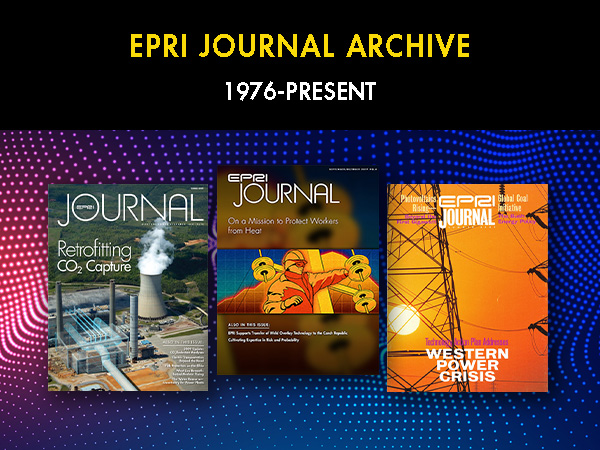In field tests at six fossil power plants, EPRI advanced a new, more cost-effective process for evaluating the effectiveness of sorbents that capture mercury from flue gas.
EPRI developed the Rapid Sorbent Validation Protocol (RSVP) as a new technical approach to help electric utilities reduce stack mercury emissions. Many fossil plants may choose to inject sorbents and other chemicals into the flue gas stream at a cost of more than $1 million per year. To determine the correct amounts of these additives, plant operators must conduct expensive, time-intensive tests in which hundreds of pounds of sorbents are injected into the flue gas.
Using RSVP, operators can potentially reduce the cost of testing sorbents by more than 50%. A simple sampling system directs a small amount of flue gas across sorbent tubes. The amount of mercury adsorbed by the tubes is used to establish the sorbent’s effectiveness, which may vary with different flue gas compositions.
EPRI applied RSVP to numerous sorbents in various flue gas conditions at six fossil plants operated by Great River Energy, American Electric Power, DTE Energy, Luminant, and Louisville Gas and Electric and Kentucky Utilities (LG&E and KU). Key findings:
- Four to twelve sorbents can be evaluated simultaneously.
- Using data from a reference sorbent, plant operators can compare the effectiveness of different sorbents for a specific flue gas composition and select the most promising ones for further evaluation.
- RSVP can be used to determine how changing flue gas conditions affect sorbent performance. For example, tests showed that increased sulfur trioxide and nitrogen dioxide emissions can significantly degrade the performance of the sorbent activated carbon.
- RSVP can provide quality control for different batches of a sorbent.
- Using RSVP, sorbent developers can assess new formulations and chemical additives quickly.
- For some applications (particularly in high-dust environments), improvements in flue gas sampling are needed.
EPRI plans additional RSVP field tests along with laboratory studies and full-scale tests on sorbent performance to refine the approach. RSVP is also being investigated for evaluating selenium sorbents.
“RSVP holds potential for reducing the time and cost of determining the most effective methods to reduce mercury emissions,” said EPRI Principal Technical Executive Ramsay Chang. “We have another tool that will allow us to provide a cleaner environment for everyone.”
Key EPRI Technical Experts:
Ramsay Chang


